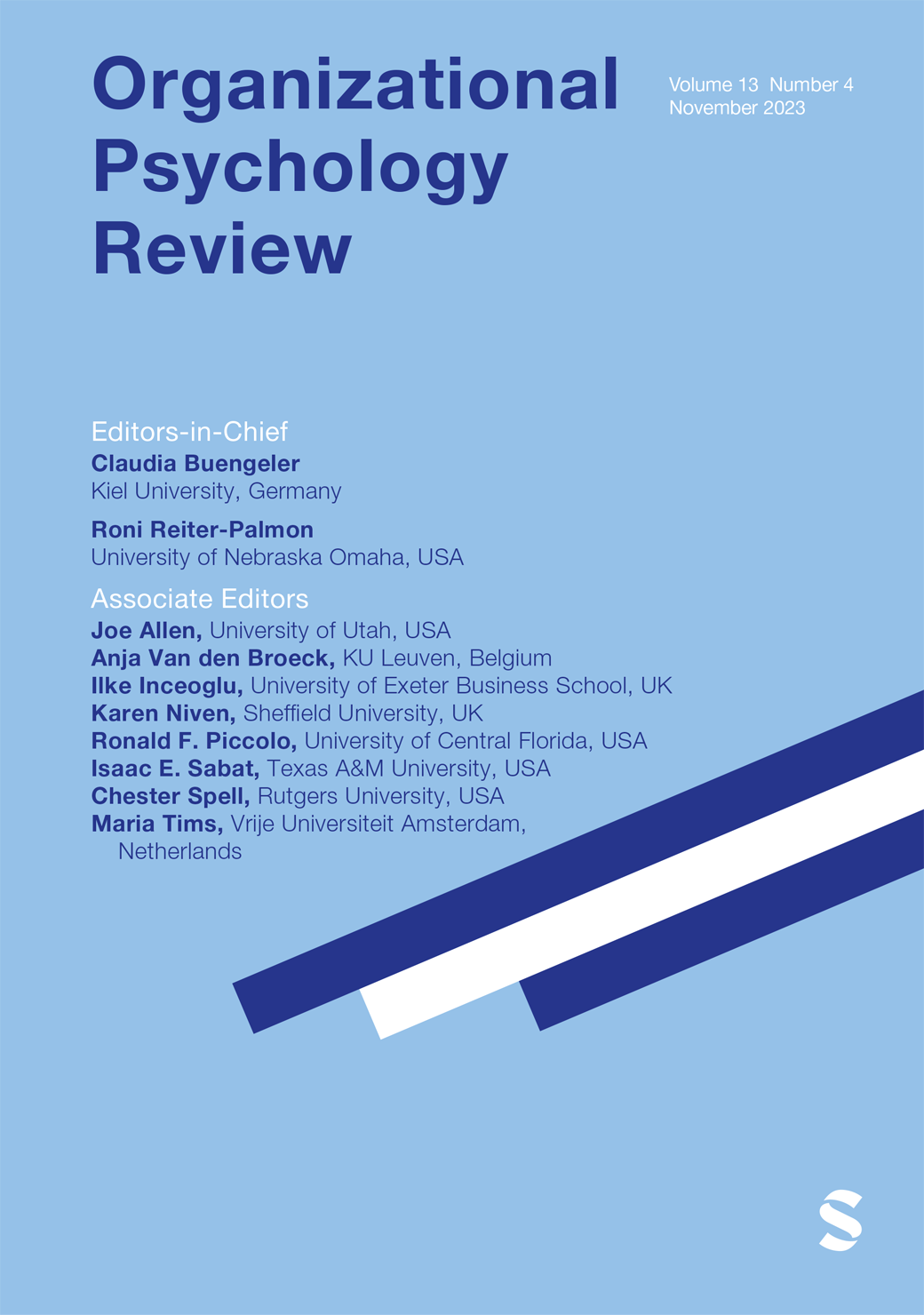Conditioning team cognition: A meta-analysis
IF 7.1
1区 心理学
Q2 MANAGEMENT
引用次数: 15
Abstract
Abundant research supports a cognitive foundation to teamwork. Team cognition describes the mental states that enable team members to anticipate and to coordinate. Having been examined in hundreds of studies conducted in board rooms, cockpits, nuclear power plants, and locker rooms, to name a few, we turn to the question of moderators: Under which conditions is team cognition more and less strongly related to team performance? Random effects meta-analytic moderator analysis of 107 independent studies (N = 7,778) reveals meaningful variation in effect sizes conditioned on team composition and boundary factors. The overall effect of team cognition on performance is ρ = .35, though examining this effect by these moderators finds the effect can meaningfully vary between ρ = .22 and ρ = .42. This meta-analysis advances team effectiveness theory by moving past the question of “what is important?” to explore the question of “when and why is it important?” Results indicate team cognition is most strongly related to performance for teams with social category heterogeneity (ρ = .42), high external interdependence (ρ = .41), as well as low authority differentiation (ρ = .35), temporal dispersion (ρ = .36), and geographic dispersion (ρ = .35). Functional homogeneity and temporal stability (compositional factors) were not meaningful moderators of this relationship. The key takeaway of these findings is that team cognition matters most for team performance when—either by virtue of composition, leadership, structure, or technology—there are few substitute enabling conditions to otherwise promote performance.调节团队认知:一项荟萃分析
大量研究支持团队合作的认知基础。团队认知描述了使团队成员能够预测和协调的心理状态。在董事会会议室、驾驶舱、核电站和更衣室等进行的数百项研究中,我们研究了主持人的问题:在什么条件下,团队认知与团队表现的相关性越来越强?107项独立研究(N=7778)的随机效应元分析调节因子分析揭示了受团队组成和边界因素影响的效应大小的有意义变化。团队认知对绩效的总体影响为ρ=.35,尽管通过这些调节因子来检验这种影响,发现这种影响在ρ=.22和ρ=.42之间可能存在显著差异。这项荟萃分析超越了“什么是重要的?”的问题,探索了“什么时候以及为什么重要?”,时间分散度(ρ=0.36)和地理分散度(ω=0.35)。功能同质性和时间稳定性(组成因素)不是这种关系的有意义的调节因素。这些发现的关键结论是,无论是从组成、领导力、结构还是技术来看,当几乎没有替代的有利条件来提高绩效时,团队认知对团队绩效最为重要。
本文章由计算机程序翻译,如有差异,请以英文原文为准。
求助全文
约1分钟内获得全文
求助全文
来源期刊

Organizational Psychology Review
Multiple-
CiteScore
10.00
自引率
1.60%
发文量
25
期刊介绍:
Organizational Psychology Review is a quarterly, peer-reviewed scholarly journal published by SAGE in partnership with the European Association of Work and Organizational Psychology. Organizational Psychology Review’s unique aim is to publish original conceptual work and meta-analyses in the field of organizational psychology (broadly defined to include applied psychology, industrial psychology, occupational psychology, organizational behavior, personnel psychology, and work psychology).Articles accepted for publication in Organizational Psychology Review will have the potential to have a major impact on research and practice in organizational psychology. They will offer analyses worth citing, worth following up on in primary research, and worth considering as a basis for applied managerial practice. As such, these should be contributions that move beyond straight forward reviews of the existing literature by developing new theory and insights. At the same time, however, they should be well-grounded in the state of the art and the empirical knowledge base, providing a good mix of a firm empirical and theoretical basis and exciting new ideas.
 求助内容:
求助内容: 应助结果提醒方式:
应助结果提醒方式:


